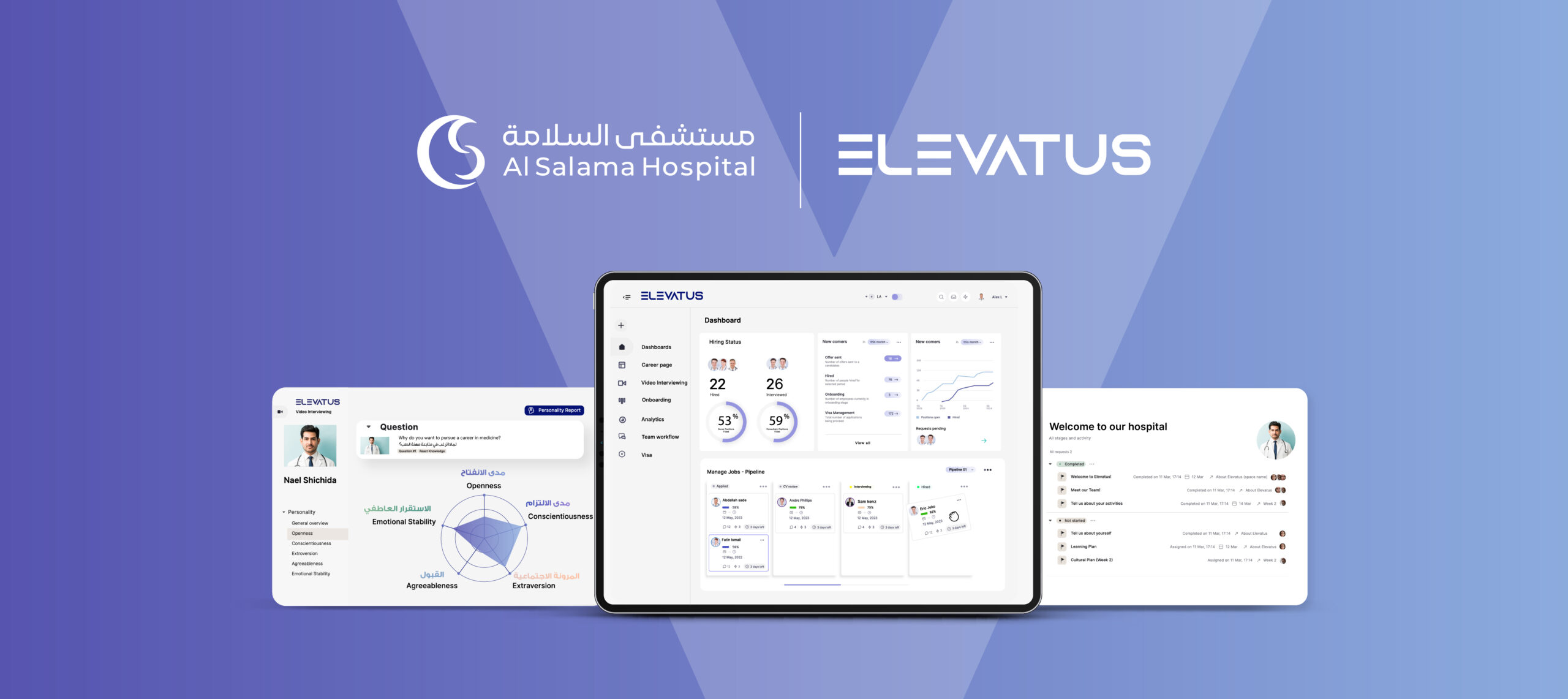
Candidate Assessment
Modern Approaches to Soft Skills Evaluation During an Interview to Make Exceptional Hiring Decisions
May 26, 2023



Kiran Kazim
Content Writer
Gone are the days when a candidate’s resume could solely rely on a laundry list of qualifications and past experiences. Employers have realized that assessing a candidate’s soft skills is equally essential to ensure a harmonious and high-performing team. But how can we effectively evaluate these elusive attributes during the interview process? Fear not, for we are here to shed light on the modern approaches that will revolutionize your hiring decisions.
In this blog, we will delve into the fascinating realm of soft skills evaluation, where we will explore innovative techniques and strategies to uncover the true potential of job applicants.
Join us as we embark on a journey to unlock the secrets behind exceptional hiring decisions and learn how to evaluate soft skills in an interview!
Why Soft Skills are Critical for Workplace Success?


In today’s fast-paced and interconnected world, the significance of soft skills in the workplace cannot be underestimated. While technical expertise and academic qualifications are undoubtedly important, it is the possession of soft skills that sets exceptional employees apart from the rest. So, what exactly are soft skills?
Soft skills are a broad category of interpersonal, social, and communication skills that allow people to function well in collaborative settings and successfully negotiate challenging work conditions. These abilities include emotional intelligence, problem-solving, cooperation, flexibility, and effective communication, among others.
You might be wondering why soft skills are essential for success in the workplace. Imagine a group of extremely competent individuals who are unable to work together, convey their ideas, or adjust to changing conditions.
However, evaluating soft skills during the interview process presents a unique challenge. Unlike technical abilities, which can be demonstrated through certifications or tests, soft skills are intangible and require a more nuanced approach for assessment.
In the following sections, we will explore modern techniques and innovative strategies to effectively evaluate soft skills during interviews. From behavioral-based questions to role-playing scenarios, we’ll provide you with the tools to identify those exceptional candidates who possess the vital soft skills your organization needs for success. So, let’s dive in!
Essential Soft Skills to Illuminate During an Interview


Now that we understand the importance of soft skills and the challenge of evaluating them, let’s delve into the key soft skills to focus on during an interview. These essential qualities can truly make or break an employee’s success in the workplace. So, let’s explore them one by one, and sprinkle in some real-life examples to bring them to life!
Unleashing the Power of Effective Communication
Effective communication is the cornerstone of a successful professional journey. It encompasses not only the ability to articulate thoughts and ideas clearly but also active listening and empathy. Candidates that can speak with assurance, participate in conversation, and have a grasp of other people’s opinions will stand out during the interview.
Consider the scenario when you are interviewing a candidate for a position in customer service. You enquire as to how they would respond to a challenging consumer complaint. In addition to giving a thoughtful response, a candidate with good communication skills would also show empathy by noting the customer’s annoyance and offering a solution that takes their worries into account.
By utilizing EVA-SSESS, you can unlock valuable personality insights on candidates, unveiling their preferred communication style, learning methods, and more, to make informed hiring decisions.
Unraveling the Power of Problem-Solving and Critical Thinking
In today’s complex and rapidly changing world, problem-solving and critical thinking skills are invaluable assets. Look for candidates who can analyze situations, identify underlying issues, and propose innovative solutions. During the interview, present candidates with hypothetical scenarios or past challenges your company has faced, and observe how they approach problem-solving.
For example, let’s say you’re interviewing a candidate for a project management position. Ask them to describe a time when they encountered a significant obstacle during a project. A candidate with strong problem-solving skills would walk you through the steps they took to analyze the problem, gather information, brainstorm solutions, and ultimately implement a successful resolution.
Igniting the Power of Teamwork and Collaboration
No organization operates in isolation, making teamwork and collaboration indispensable. Assess how well candidates can work with others, contribute to a team’s success, and navigate through potential conflicts. Look for individuals who are cooperative, respectful, and demonstrate the ability to build positive relationships.
During the interview, inquire about their experiences working in teams and their specific contributions. You might ask them to describe a challenging team project they participated in and how they successfully collaborated with their colleagues to achieve the desired outcome.
Think about conducting an interview with a candidate for a sales position. Ask them to recall a time when they had to cooperate with coworkers from various departments in order to achieve a common objective. A candidate with good teamwork and collaboration abilities would highlight their capacity to promote open communication, capitalize on each team member’s capabilities, and recognize group accomplishments.
Embracing the Superpowers of Adaptability and Flexibility
In a constantly evolving business landscape, adaptability and flexibility are vital. Look for candidates who can embrace change, navigate ambiguity, and quickly adjust their approach when faced with unexpected circumstances. These individuals are open-minded, resilient, and eager to learn and grow.
During the interview, inquire about their experiences in adapting to new situations or handling challenging changes. For instance, you could ask them to describe a time when a project’s scope or objectives shifted unexpectedly, and how they adapted their plans and mindset accordingly.
Consider an example where you’re interviewing a candidate for a marketing role in a startup. Ask them about their experience working in a fast-paced environment with shifting priorities. A candidate with strong adaptability and flexibility skills would share their ability to quickly pivot strategies, embrace new technologies, and thrive in an ever-changing landscape.
Harnessing the Power of Emotional Intelligence
Last but certainly not least, emotional intelligence plays a vital role in fostering healthy relationships, managing conflicts, and understanding oneself and others. Look for candidates who exhibit self-awareness, empathy, and the ability to regulate their emotions effectively.
During the interview, pay attention to candidates who demonstrate emotional intelligence through their demeanor, body language, and responses to situational questions. Look for individuals who show empathy, actively listen, and can handle constructive feedback with grace.
For example, imagine you’re interviewing a candidate for a leadership position. Ask them about a time when they had to provide feedback to a team member who was underperforming. A candidate with strong emotional intelligence would describe how they approached the conversation with empathy, acknowledged the team member’s challenges, and worked collaboratively to find a solution that supported their growth and development.
Remember, evaluating soft skills requires a combination of observation, targeted questioning, and assessing how candidates respond in real-world scenarios. It’s not just about what they say but also how they say it and how they interact with others.
Modern Approaches to Soft Skills Evaluation Methods


As the job market becomes more competitive and the importance of soft skills continues to rise, employers are seeking modern approaches to effectively evaluate these critical qualities during the interview process. Let’s explore some innovative techniques that will revolutionize your soft skills evaluation game!
Behavioral Interviewing
Behavioral interviewing is a popular approach that focuses on past experiences to assess how candidates have demonstrated specific soft skills in real-life situations. It involves asking candidates to provide detailed examples of how they have handled challenges, worked in teams, or resolved conflicts.
For instance, if you want to assess a candidate’s problem-solving abilities, ask them to describe a moment when they encountered a challenging situation at work and how they approached addressing it. You can learn more about someone’s problem-solving methods, critical thinking skills, and level of resourcefulness by pressing them for particular information.
Situational Judgment Tests
Situational judgment tests (SJTs) provide candidates with hypothetical workplace scenarios and ask them to select the most appropriate course of action from a list of options. These tests assess candidates’ ability to make sound decisions, navigate ethical dilemmas, and apply their soft skills to different situations.
For instance, you might present a candidate with a scenario where they need to prioritize competing tasks and decide which one to tackle first. By analyzing their responses, you can gauge their prioritization skills, adaptability, and ability to manage their time effectively.
Role-Playing and Simulation Exercises
Role-playing and simulation exercises offer a hands-on approach to soft skills evaluation. Candidates are given specific roles or scenarios to act out, allowing you to observe their communication, problem-solving, and collaboration skills in real-time.
For example, if you’re hiring for a leadership position, you could create a simulated scenario where the candidate needs to resolve a conflict within a team. Through this exercise, you can assess their ability to listen actively, mediate disagreements, and find mutually beneficial solutions.
Emotional Intelligence Tests
It is possible to evaluate candidates’ emotional intelligence using a variety of exams and evaluations that gauge their self-awareness, empathy, and emotional control.
These exams frequently ask candidates to score their emotional response to hypothetical situations or statements or to select the best suitable emotional response. You can learn more about a person’s capacity for empathy for others as well as their understanding and control of their own emotions by analyzing their responses.
Although these contemporary methods for evaluating soft skills offer insightful information, it’s crucial to keep in mind that they should be combined with other assessment techniques and customized to the requirements of your particular firm. Each method has advantages and disadvantages, thus combining several methods will result in a thorough assessment of applicants’ soft abilities.
So let’s get to work and investigate how these novel strategies can actually be used.
Some Helpful Tips for Evaluating Soft Skills during Interviews
Now that we’ve explored various modern approaches to soft skills evaluation, let’s discuss how you can incorporate these techniques into your interview process effectively. By following these general tips, you’ll be well-equipped to assess candidates’ soft skills and make exceptional hiring decisions.
- Prepare targeted questions: Develop a set of questions that specifically target the soft skills you want to evaluate. For example, if you’re assessing teamwork, ask candidates to describe a challenging team project they worked on and how they contributed to its success. Tailor your questions to get candidates to share specific examples that showcase their soft skills in action.
- Use behavioral-based interviewing: Incorporate behavioral-based questions into your interviews. Ask candidates to describe past situations where they’ve demonstrated the desired soft skills. This technique helps you gauge their real-life experiences and how they apply their skills in different contexts.
- Observe non-verbal cues: Pay attention to candidates’ body language, facial expressions, and tone of voice. Non-verbal cues can provide insights into their emotional intelligence, communication style, and level of confidence. Look for positive indicators such as active engagement, eye contact, and open gestures.
- Create realistic scenarios: Introduce hypothetical scenarios that simulate real workplace situations. Ask candidates how they would handle challenging scenarios, conflicts, or decision-making dilemmas. Their responses will shed light on their problem-solving abilities, adaptability, and critical thinking skills.
- Encourage self-reflection: Prompt candidates to reflect on their own soft skills. Ask questions like, “What do you consider your strengths in terms of communication?” or “How do you approach conflict resolution?” Encouraging self-awareness demonstrates their ability to assess and articulate their own skills accurately.
- Incorporate role-playing exercises: Engage candidates in role-playing exercises where they can demonstrate their soft skills in action. Provide them with a scenario and observe how they communicate, collaborate, and problem-solve in the given context. This hands-on approach allows you to see their skills in a simulated environment.
- Consider panel interviews: Involve multiple interviewers in the process to gain different perspectives on candidates’ soft skills. Each interviewer can focus on specific skills and provide valuable input during the evaluation. Collaboration among interviewers ensures a comprehensive assessment of candidates’ abilities.
- Follow-up with references: During the reference check stage, ask referees about the candidate’s soft skills. Inquire about their teamwork, communication style, adaptability, and other relevant qualities. This additional insight can validate your evaluation and provide a well-rounded view of the candidate.
- Create a scoring rubric: Develop a scoring rubric that aligns with the soft skills you’re evaluating. This structured approach allows you to objectively assess candidates based on specific criteria. Assign ratings or scores to each skill, ensuring consistency and fairness in the evaluation process.
- Trust your instincts: While it’s crucial to rely on data and observation, don’t discount your gut feeling. Sometimes, intuition can offer valuable insights into a candidate’s soft skills. If something feels off or doesn’t align with your organization’s values, it’s worth exploring further.
Incorporating these tips into your interview process will enable you to evaluate candidates’ soft skills effectively. Remember, the goal is to identify individuals who possess the necessary qualities to excel in your organization and contribute to a positive work environment.
Conclusion: Unleashing the Power of Soft Skills in Hiring
By making soft skills evaluation a priority, you can identify candidates who possess the intangible qualities necessary for workplace success. Soft skills like communication, problem-solving, teamwork, adaptability, and emotional intelligence play a vital role in fostering a positive and productive work environment.
To further enhance your soft skills evaluation, consider leveraging futuristic technology solutions like EVA-SESS, an intelligent platform designed to test and evaluate key skills and abilities. With EVA-SESS, you can streamline your assessment process and gain deeper insights into candidates’ soft skills potential using the scientifically validated AI-personality reports
So, let’s step into the future of talent acquisition, embrace the power of modern soft skills evaluation techniques, and build exceptional teams that drive your organization forward. With EVA-SESS by your side, you’ll test and evaluate key skills and abilities intelligently, paving the way for extraordinary hires and a brighter future. Request a free demo today!
Turn top talent to employees fast
Hire, assess, onboard and manage top talent for every job. See how Elevatus streamlines everything; from acquire to new hire.
Request a demoAuthor



Kiran Kazim
Don't miss a thing!
Stay one step ahead. Subscribe and get the latest updates, news, and insights from Elevatus straight to your inbox.






